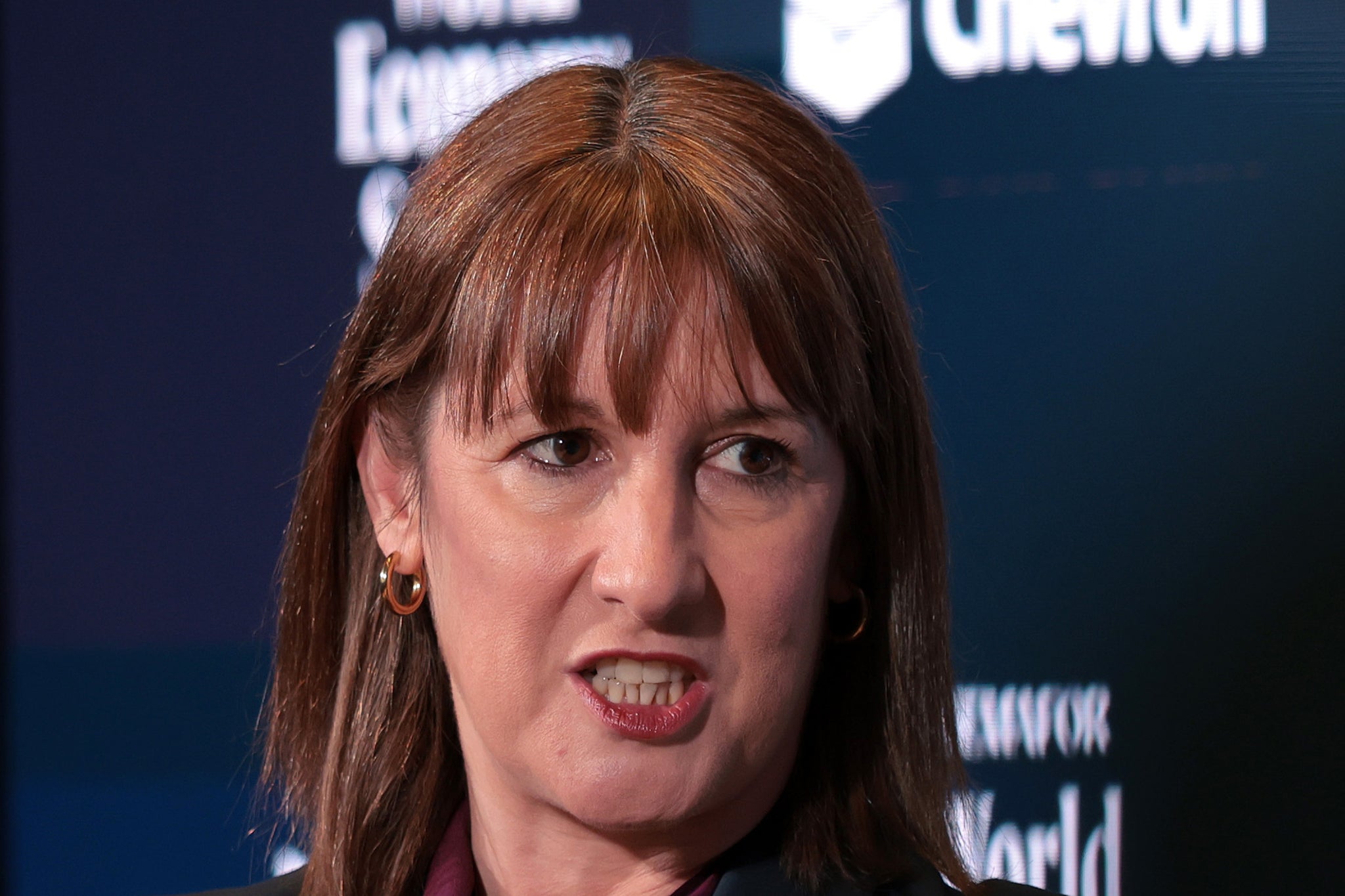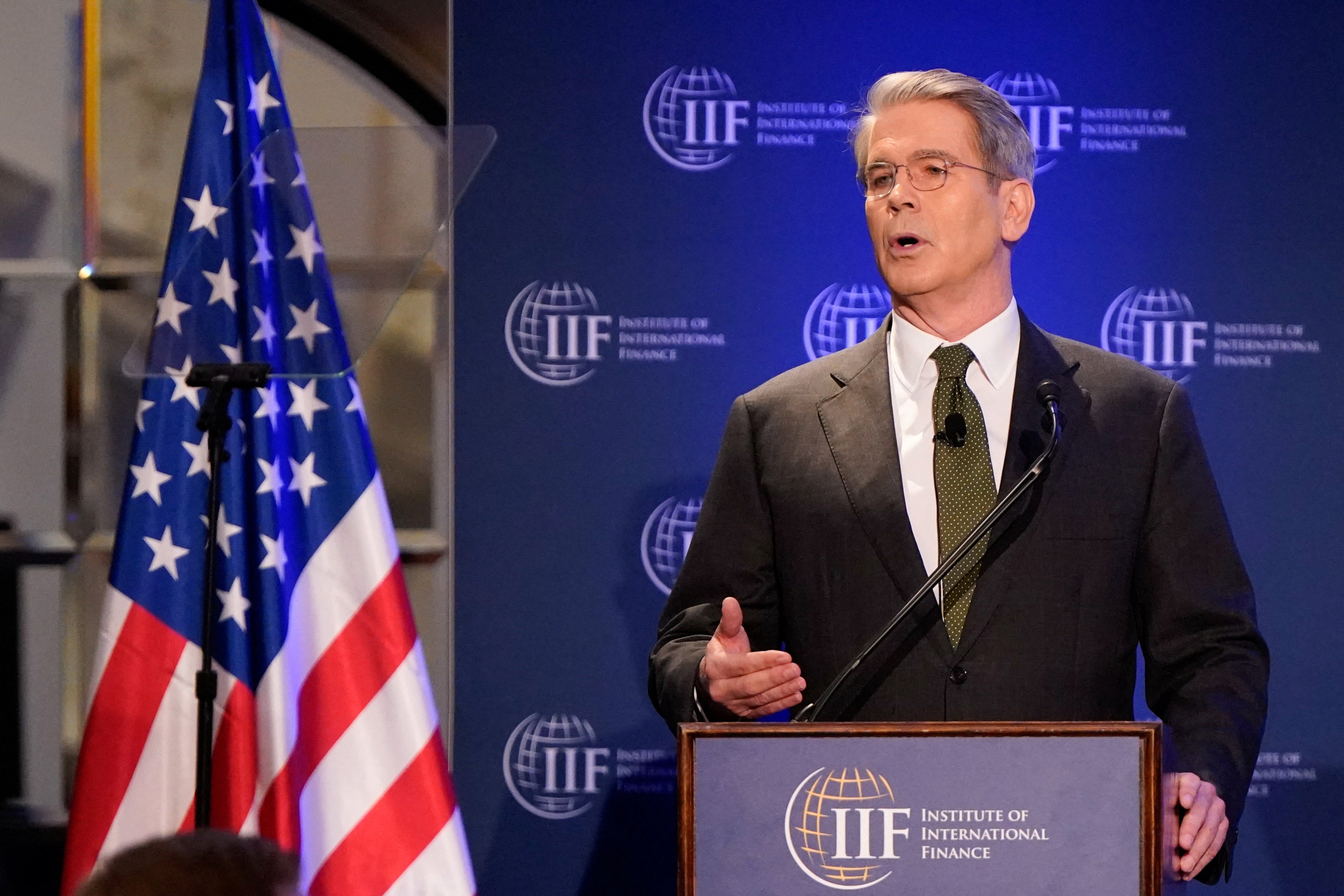Rachel Reeves has signalled that she is prepared to slash tariffs on US automobile imports to the UK in a bid to land a trade deal.
According to a report in The Wall Street Journal, a document has been circulating that suggests the UK could reduce tariffs from 10 per cent to 2.5 per cent on US vehicles and parts.
The apparent concession was revealed as the chancellor arrived in Washington DC for a summit at the International Monetary Fund (IMF) and ahead of a meeting with US Treasury secretary Scott Bessent.
The report is the second concession understood to be on the table from the UK after reports that Sir Keir Starmer’s government could shelve a planned digital services tax.

Speaking in Washington to business leaders, Ms Reeves did not talk about specific proposals but said she wants “to see tariff and non-tariff barriers reduced between the UK and the US”.
It came as she attempted to play down the urgency of getting a US trade deal over the line despite pressure building on her to do so amid dire predictions about the UK economy.
With the clock ticking on Donald Trump’s 90-day pause in the implementation of US tariffs, which will end in early July, the chancellor tried to not blink over the potential desperation of the UK’s position as she attended the summit in Washington.
The IMF has warned that with Trump’s tariffs of at least 10 per cent, the UK would have the highest inflation in the West of 3.1 per cent, while the growth forecast for 2025 was downgraded from 1.6 per cent to 1.1 per cent.
But despite these warnings, the chancellor told ITN in Washington that she is in “no rush” to get a trade deal done, and pledged that any deal agreed “will need to be in the British national interest”.
She said: “I believe that we can secure an agreement with the United States. We’re not going to rush into a deal. We want the right deal in Britain’s national interest. We can all see that the world around us has changed. We’ve got to respond to those changes.”
When she was asked whether President Trump “can be trusted”, Ms Reeves responded: “Absolutely.”
She went on: “There’s a good relationship between the president of the United States, Donald Trump, and our prime minister, Keir Starmer. We saw that when the prime minister visited the White House recently, and also in the continued dialogue between our two leaders.”
During a three-day visit to the US, Ms Reeves is set to hold meetings with her G7, G20 and IMF counterparts about the changing global economy. She will make the case for open trade that provides stability for businesses and security for working people.
The chancellor will underline the importance of tackling barriers to trade to kickstart economic growth, supporting businesses, and putting more money in working people’s pockets.

Speaking earlier at the World Economy Summit, Ms Reeves claimed the US president was “keen to do a deal with the UK, reflecting the closeness of that relationship”.
She also suggested she would look to go beyond a deal on tariffs, and spoke about a “technology partnership” and “building on the close relationship we have on security and national defence”.
She said: “This isn’t just about damage limitation, it’s also about what the next step is.”
Adding that she would like to see a reduction in tariff and non-tariff barriers on both sides of the Atlantic, Ms Reeves said: “I think that can be a bilateral process between our two countries to remove those remaining trade barriers that do exist, and if we work on that basis there is a deal to be done that will benefit industry both in the UK and the US, and jobs in our countries as well.”
Ms Reeves avoided a question about which unnecessary barriers to trade between the UK and US she would like to see removed. This came amid fears that the UK may need to cut back on food safety standards to appease US demands to sell chlorinated chicken in Britain.
The Independent has previously revealed how JD Vance is leading efforts to force Britain to backtrack on its laws about hate speech and online safety, as well as a digital services tax, as he demands the government reassess its approach to so-called free speech as part of a trade deal.
The chancellor is also resisting pressure to change course on her economic policy, despite warnings that she will have to make more cuts or borrow more. In particular, she made it clear that election pledges not to raise income tax, national insurance for employees or VAT will not be broken.
She told ITN: “We’ve made that commitment in our manifesto, and we will honour the commitments that we made to the British people. British people are still concerned around the cost of living.”
With parallel discussions taking place with the EU over a Brexit reset, which are set to conclude on 19 May, Ms Reeves has also hinted at a potential compromise on a youth mobility scheme that would allow young people to live and work freely in Europe for two years.
Pressed on the issue, she refused to rule out the scheme, saying: “Those discussions with our colleagues and allies in the European Union are ongoing at the moment. We made a clear manifesto commitment to bring down net migration, and for no return to free movement within the European Union. It is important that we determine who comes into our country, and those things are not up for negotiation.”
In a meeting in Washington DC, which she co-chaired with the Polish minister of finance Andrzej Domanski, the chancellor also set out the British government’s call to better coordinate European efforts to increase defence spending, grow our defence industrial base, and get more for our money.
She said: “The world has changed, and the UK and its European allies must step up and meet the moment.
“Merely increasing spending is not enough. In an uncertain and changing world, we must be strategic in where and how we invest – to secure our industrial future, meet our Nato commitments, and deliver the security for working people that supports our plan for change.”



